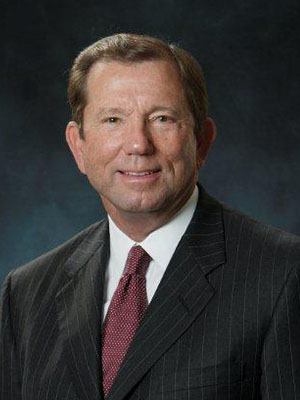By Lizzie Thomas | Staff Writer
Nominations for potential alumni-elected regents are open for this year for the first regularly scheduled regent election, as of Oct. 24 when nominations opened on social media.
Since 2016, alumni have had an opportunity to be heard as to how Baylor University is run by the Board of Regents. The terms for regents are three years, but in 2016, the Board of Regents installed their appointees with one, two and three year terms so they could implement the alumni-election process in a timely manner.
Daniel H. Chapman, an alumni-elected Regent and vice chair of the Board of Regents, as well as a member of the nominating, governance and leadership committees, summarized what he looks for when determining if someone would be a well-qualified candidate.
“What I look for and I suggest people look for is, number one, obviously they have to be a Baylor alumnus,” Chapman said. “After that, people that love Baylor and people that are recognized experts in whatever field they’re in. We need good Baylor regents in pretty much any field because Baylor needs all those people to come together. Running a college is a complicated business.”
Only 10 percent of the regents are alumni-nominated. To nominate a potential candidate to be regent, an alumnus can download the nomination form, get 50 signatures from fellow alumni and send that form to the Board Relations Office by Nov. 30.
The Nomination Committee will contact all nominees to complete the process through the means listed on the form. From December to March, the Nomination Committee will review applications and select candidates, who will be announced and profiled in the Baylor Magazine in early April. From then to early May, graduates vote on who best fits the criteria for regent. In late May, the results will be announced and the new regents will begin serving.
Campaigning activities are limited. According to the Baylor website, “alumni-elected Regent candidates may not run on platforms but on their accomplishments. Others are asked to refrain from campaigning activities on their behalf. Baylor is not permitted to endorse or oppose any candidate.” However, the Nominating Committee is made up of two alumni-elected regents and two other regents who decide who makes it to the ballot.
These are the qualities the Nomination Committee looks at when deciding whether a nominee can be in the running according to the Board of Regents website page Qualifications of Alumni-Elected Regents:
They must be Baylor graduates and “committed Christians who have accepted Jesus Christ as both Lord and Savior, active members of a Baptist church or a local church from a historic Christian tradition and living in a manner that demonstrates their commitment to Him,” according to the list. One of the requirements is a letter preferably from a senior pastor attesting to these facts. The website mentions that the nominees must belong to a Baptist church or that of a local church of another historic Christian tradition.
They must be able to empirically demonstrate what the website calls “their deep appreciation for Baylor, its unique role in higher education and Baptist life and its indebtedness to its Baptist founders and Texas Baptist churches,” presumably with participation in organizations, contributions, public statements, etc.
They must be willing to give of their “time, talent and financial means to strengthen and move Baylor forward,” as the burden of being a regent includes a robust addition to one’s schedule and a willingness to contribute expert advice as a part of the board, according to the website.
They must be nominated by one of the following three entities: one of the various advisory or advocacy boards and groups (such as academic school advisory groups or a student life advisory group), a petition signed by at least 50 other Baylor graduates or be committee-appointed.
The application after nomination includes a statement of the nominee’s faith, a letter of recommendation from a minister and a statement of willingness to promote Baylor’s values and mission, which, according to the Baylor website, includes “shared governance, academic freedom and the integration of academic excellence with Christian commitment.”
Chapman said nominating more people is better because it gives a greater opportunity for choosing the best candidates.
“As many nominees as possible [would be optimal]. The more nominees we get, the more likely we are to get a nomination on the ballot. There were a fewer number this last year and we are working very diligently to increase the number of nominations that we get to increase the likelihood that we’ll get qualified regents,” Chapman said.
Bill Mearse is the chair of the Baylor Business Alumni Network in Houston, who noted the positive aspects of the new process in selecting alumni.
“I think the new process is a good thing,” Mearse said. “It places regents on the board that can give the alumni that put them there direct feedback. I’m comfortable with the process and I encourage all alumni to participate in the nomination and voting process.”



